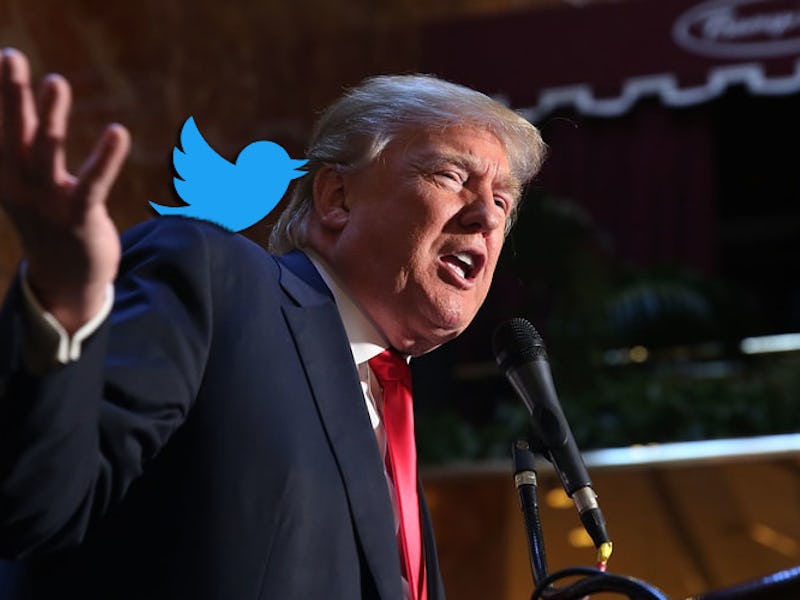How Much Did Twitter Help Donald Trump?
Let's examine social media's effect on the election.

Donald Trump adores Twitter. He uses the service to rebut critics, reach his followers, and react to whatever happens to be in the cultural zeitgeist. At the time of writing he’s tweeted more than 34,000 times and is followed by 15 million people; those numbers will surely rise as the president-elect continues to share his thoughts on the site. But is it fair to say Twitter led to Trump’s victory?
Salesforce CEO Marc Benioff thinks so. Twitter “has a unique position in the world. As evidenced by this election, I think it’s more important than ever,” he told Recode. “Without Twitter, I don’t think you would have President-elect Trump.” (Benioff, it’s worth noting, passed on an opportunity to buy Twitter.)
It’s true that Trump used Twitter throughout his presidential campaign, with varying degrees of success, to influence public opinion. Twitter was his outlet for reaching constituents directly, and he took advantage of that with tweetstorm after tweetstorm, ad nauseum.
Trump is also a hit among the alt-right community that has formed on Twitter. Pew said that more Twitter users are men than women, and Trump has more male supporters.
But even though more men support Trump and use Twitter, a lot of the social media site’s other demographics skew away from the president-elect. Here’s Pew again:
This shows that Twitter leans towards young, educated, and wealthy people of color who live in urban areas. Trump voters mostly belong to opposing demographics: He received the most votes in counties where old, uneducated, working class white people made up the majority of the population. While Trump did receive some support from other demographics, one of those is not at all like the other.
Trump’s lack of appeal to those voters can largely be attributed to his policies, which range from deporting Muslims to building a wall along the U.S. border with Mexico, but his tweets probably didn’t help. He attacked women, pandered to Hispanics, and otherwise used the platform to bludgeon anything with which he disagreed.
There’s no denying that the filter bubbles created by technology, whether it’s fake news on Facebook or misleading sites that survived thanks to Google’s ad tools, made it easier for voters to avoid critical news about their candidate. But did Twitter make Trump president? No. That blame lies with America.